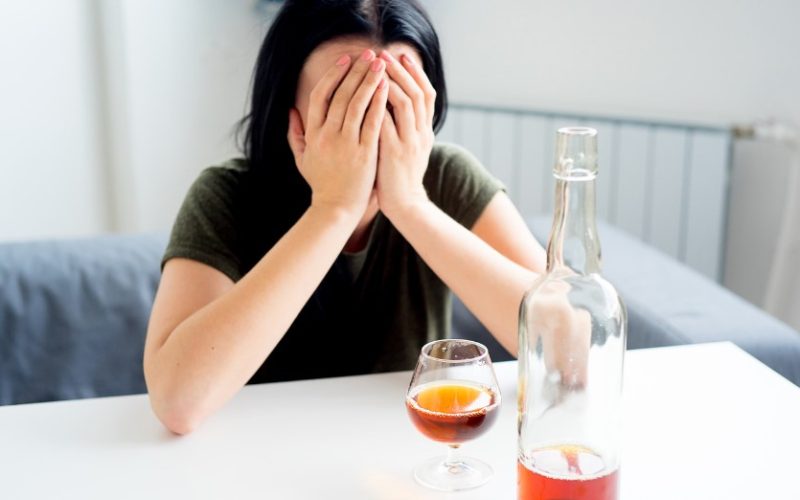Addressing Stigmas and Embracing Recovery In The Growing Trend of Women Seeking Treatment for Alcohol Addiction
It has come to light that in recent years, there has been a considerable surge in the number of women seeking assistance for alcohol addiction, marking a significant shift in the landscape of addiction services. The data paints a clear picture of a growing trend, with statistics showing a 16% increase in the number of women entering treatment for alcohol addiction across the UK in the last five years alone.
Delamere, a private rehab clinic in Cheshire, has echoed this trend, reporting a substantial rise in the proportion of women seeking addiction help, with figures climbing from 28% to nearly 37% within just three years.
More Women Are Seeking Help
This surge in women seeking treatment for alcohol addiction reflects a changing perception and attitude towards addiction among women. Historically, there has been a misconception that alcohol addiction is primarily a male issue. However, recent findings challenge this notion, with a significant proportion of women acknowledging the addictive nature of alcohol. In 2023, 44% of women surveyed expressed a belief that alcohol is ‘very addictive,’ highlighting a growing awareness of the risks associated with alcohol consumption among women.

Comparative reports between 2018 and 2022 further underline this trend, revealing a notable increase in the number of women undergoing addiction treatment, particularly for alcohol-related issues. The latest addiction census supports these findings, indicating that alcohol addiction is one of the primary reasons why women seek rehabilitation services.
Delamere’s Addiction Data In Women
2020 – 28%
2021 – 28.5%
2022 – 34.5%
2023 – 36.9%
Delving Into The Demographic
While men still dominate the demographic seeking rehabilitation services, the steady rise in women entering addiction treatment over the past few years showcases a significant shift in societal perceptions. Martin Preston, CEO and Founder of Delamere, emphasises the importance of addressing the lingering stigmas surrounding women and addiction.
Historically, women have faced various barriers to seeking treatment, including fears of judgement, childcare responsibilities, and societal shame. However, Preston expresses optimism in the continuous rise of women seeking treatment, attributing it to the gradual dismantling of societal stigmas surrounding addiction.
Despite the progress made in addressing stigmas and encouraging women to seek treatment for alcohol addiction, there remain challenges that must be confronted. One such challenge is the need for tailored and gender-sensitive treatment approaches within rehab clinics. Historically, addiction treatment has often been designed with a male-centric focus, overlooking the unique needs and experiences of women struggling with alcohol addiction.
Therefore, it is imperative for rehab clinics to adopt inclusive and comprehensive programs that address the specific biological, psychological, and socio-cultural factors influencing women’s addiction journeys. By embracing gender-responsive approaches, rehab clinics can enhance the effectiveness of treatment interventions and better support women on their path to recovery.
The Importance of Alcohol Rehab Clinics
The role of alcohol rehab clinics in addressing alcohol addiction cannot be overstated. These specialised facilities offer a structured and supportive environment where individuals receive comprehensive treatment tailored to address the physical, psychological, and emotional aspects of alcohol dependency.

Programmes usually consist of behavioural treatment, individual and group counselling, medically supervised detoxification, and relapse prevention techniques. In addition to addressing addiction, alcohol rehab clinics provide education on the effects of alcohol abuse and support for co-occurring mental health disorders.
The ultimate objectives of alcohol treatment centres are to help clients achieve sobriety, cultivate long-term rehabilitation, and acquire coping mechanisms. These clinics provide individualised care and support, enabling people to escape the cycle of addiction and live happy, alcohol-free lives.
In conclusion, the growing trend of women seeking treatment for alcohol addiction signifies a significant societal shift in perceptions and attitudes towards addiction. We can continue to enable people, regardless of gender, to overcome addiction and lead satisfying lives of recovery by eliminating stigmas and obstacles to treatment and by offering easily available and compassionate assistance.









